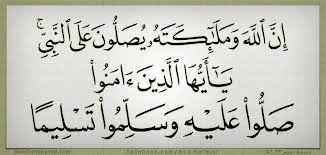The second result of introduction of aristocratic class in Tasawwuf was to consider the non-goals to be the objectives (of the path) and absolute negligence of the goals. As a result, ‘the perfected sates’ (kamalat) that were the secondary offsprings of successful achievement of the objective were considered to be the goals themself. Spiritual pleasures and states, material unveiling, powers to do supernatural feats and perform miracles, spiritual ecstasy, true dreams, etc. became the sole objective of a spiritual seeker. They were considered to the salient features of piety (taqwa) and being a pious individual (buzurg).
In order to achieve these ‘perfected states’ means and methods that are not prescribed by Sunna were adopted. In doing so instructions were taken from (non-Muslim) ascetics and philosophers. As a result a complex potpourri of Indian customs and Greek philosophy was born. It was named the Islamic Tasawwuf.
The objective of this was to be an individual with spiritual powers and be able to perform super natural feats.
The purpose of having these superhuman powers could not be anything else other than to establish one’s superiority over other fellow men in order to influence and control their hearts (& minds).
How can the real Islamic Tasawwuf (as has been explained earlier), that teaches deliverance from the trap of lower self (nafs), establishing the vision of Truth (shuhood e Haqq) [ihsan], annihilation (fana) from the creation and being existent (baqa) with the Truth be compared to this pseudo Islamic Tasawwuf?’
Quran aur Tasawwuf, page 23-4
IDSA 2013, San Francisco, CA



















 It is highly recommended that those individuals who are proceeding to the radiant blessed city of Medinah have this book with them.
It is highly recommended that those individuals who are proceeding to the radiant blessed city of Medinah have this book with them.